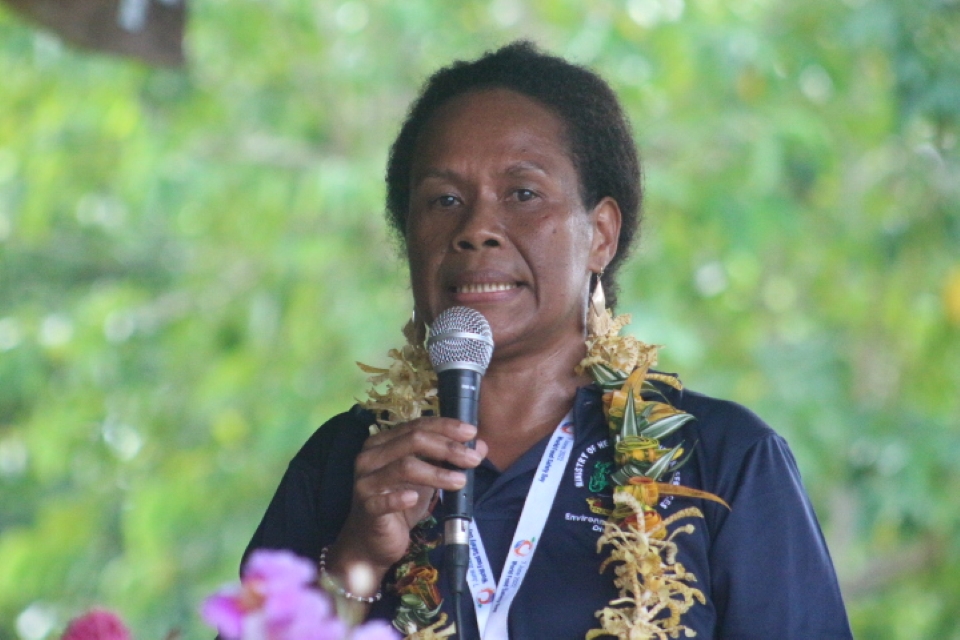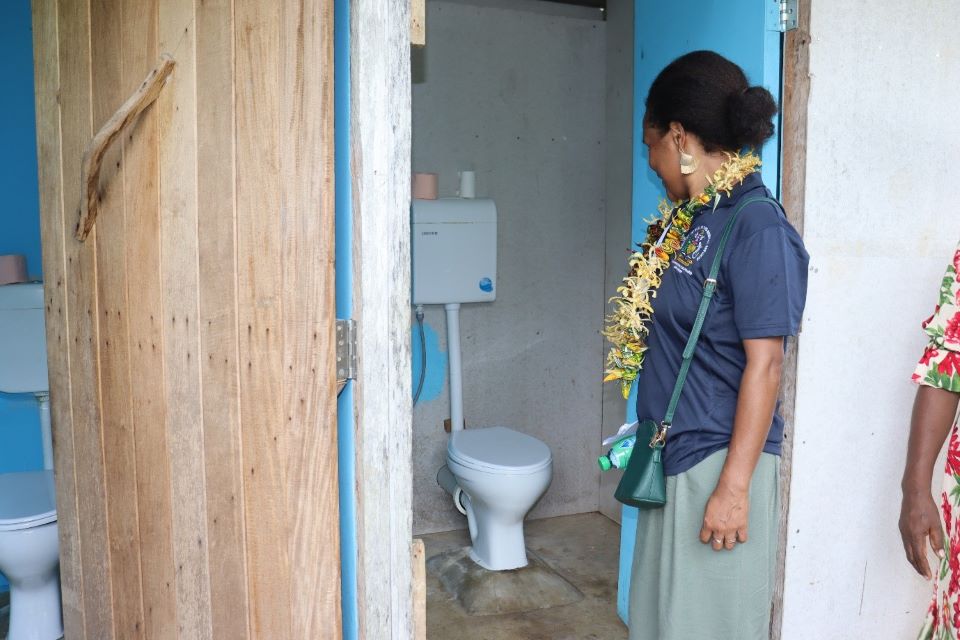BY JOHN HOUANIHAU
RESIDENTS of the rural village in Namoraoni, Malango Ward, Central Constituency of Guadalcanal Province have been advised to take extreme care and maintain a good level of hygiene in their lavatory facilities.
Chief Officer of the Food Safety Unit of the Ministry of Health and Medical Services (MHMS) Mrs. Patricia Soqoilo, made the call at the milestone event to honor the rural village of Namoraoni’s achievement of implementing the Community Led Total Sanitation (CLTS) approach and achieving No Open Defaecation (NOD) on 20th July.
Mrs. Soqoilo encouraged the community to look after their sanitation facilities, maintaining the cleanliness of those facilities is important other it poses health risks.
She said as part of the MHMS goals for long-term sanitation services, a total of three lavatory facilities were constructed in the Namoraoni Community.
“The availability of functional and private toilets can positively impact the health and well-being of the rural community, particularly for women, girls, and children,” Mrs. Soqoilo noted.
She said proper sanitation facilities (for example, toilets and latrines) promote health because they allow people to dispose of their waste appropriately, preventing contamination of their environment and reducing risk to themselves and their neighbors.

Likewise, the Ministry of Health and Medical Services (MHMS) congratulates the Namoraoni Community, Malango Ward, Central Constituency in Guadalcanal Province for the achievement of implementing the Community Led Total Sanitation (CLTS) approach and achieving No Open Defaecation (NOD) on 20th July.
The program aimed to reduce mortality and morbidity by fecal-oral disease, particularly for the well-being of young children under five and their parents. CLTS is an approach to triggering the entire community into realizing the need for appropriate sanitation to reduce fecal-oral diseases through active community engagements with trained facilitators.
To date, three communities have been verified to be NOD and one of them is Namoraoni Community.
On a similar note, Mrs. Patricia Soqoilo said that the purpose of these initiatives is to assist communities’ combat illness.
“Illness related to inadequate cleanliness, such as not having sufficient toilets. I recognize that communities have learned the value of having good sanitation inside their communities throughout the journey up to the present.
“So keep in mind the significance of why our communities require appropriate sanitation.
“The MHMS will keep giving priority to these programs and collaborating closely with local groups and donor partners to ensure adequate coverage.
“Today, the MHMS is pleased to see one of our communities’ achievements in having good sanitation. To protect your health, the health of your community, and the health of your children, I am making this plea on behalf of the MHMS to your community members,” she added.
She said the goal of the government’s strategy, as carried out by the MHMS, is for all residents of the Solomon Islands to have access to adequate water supplies and sanitary facilities.
“I am here on behalf of the Ministry of Health as the Director of the Environment Division. To give our communities access to the services, the government has supported Namoraoni through MHMS and partners, and today we are celebrating that success,” she said.
She later promised that MHMS will keep collaborating with partners to support the communities in implementing these crucial initiatives.
Under the Ministry of Health and Medical Services, National Sustainable Sanitation Plan (NSSP), is to scale up sustainable sanitation services delivery throughout the country, as well as to improve hygiene behaviors within the Rural Water Supply National Sanitation and Hygiene Policy (RWASH Policy).
The RWASH Strategy:
- Sanitation and hygiene will be given a high priority, with emphasis on creating demand for low-cost sanitation using non-subsidy approaches, and on sanitation in schools and health centers;
- Stronger community engagement to be promoted in planning, implementing, and operating rural WASH schemes;
- Sustainability to be strengthened through community engagement and building the capacity of the private sector and government to support communities over the long term;
- Inclusive approaches. Women and people with disabilities to be fully involved in planning, construction, and managing WASH facilities and their interests to be promoted.
Likewise, under the government’s Ministry of Health and Medical Services (MHMS) National Sustainable Sanitation Plan (NSSP). The NSSP is an implementation plan to scale up the delivery of sustainable sanitation services both provincially and nationally and to improve hygiene behaviors within the Rural Water Supply National Sanitation and Hygiene Policy (RWASH Policy).




